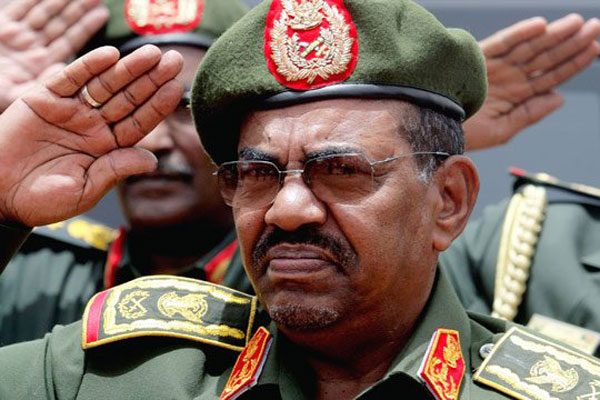
Sudan’s President Omar al-Bashir Sunday sacked the country’s 31-member cabinet and appointed a new prime minister who will form a smaller government to tackle a growing economic crisis in the African country.
Bashir’s decision to fire the entire government was approved by the top leaders of his ruling National Congress Party (NCP) at a late night meeting.
The decision to form a new government comes as Sudan faces a growing economic crisis led by an acute shortage of foreign currency and surging inflation of more than 65 percent.
“The economic situation needs to be resolved and for this President Bashir decided to cut the government at all levels,” Faisal Hassan Ibrahim, a top aide to Bashir, told reporters after the NCP meeting.
“President Bashir has decided to have a smaller 21-member government,” he said. The outgoing cabinet was comprised of 31 ministers led by premier Bakri Hassan Saleh, who was also the first vice president.
Bashir named Moutaz Mousa Abdallah, who was the irrigation minister in the outgoing cabinet, as the new prime minister, while Saleh will continue to be the first vice president.
Bashir also appointed Mohamed Osman Yousif Kiber as vice president.
Ibrahim said Abdallah had been tasked with forming the new cabinet, but it was unclear when he would be sworn in.
Earlier on Sunday, the presidency announced Bashir’s decision to sack the government of Saleh “in order to fix the situation facing the country”.
“He (Bashir) will form a new government that can once again bring hope to the Sudanese people,” the presidency said.
Deepening crisis
Sudan’s economic conditions have only worsened, with the cost of food items and other products more than doubling over the past year, while the foreign currency market has seen the Sudanese pound plunge against the US dollar.
The central bank has twice devalued the pound this year, and it currently trades at 41 to the dollar on the black market. The official rate is 28 to the dollar.
Sudan’s economic crisis was highlighted for the first time in April when then foreign minister Ibrahim Ghandour announced in parliament that he had been unable to pay salaries to his staff for months due to a shortage of funds. He was immediately sacked.
Days after Bashir dismissed Ghandour, he announced a major cabinet reshuffle that saw the oil, interior, agriculture, youth and sports and justice ministers replaced. That reshuffle was also aimed at tackling the economic crisis.
Sudan’s economic crisis has deepened despite the United States lifting in October its decades old trade embargo imposed on the African country.
Expectations that the lifting of the sanctions would help revive Sudan’s ailing economy have so far failed to materialise.
Although Washington lifted the embargo it has still kept Sudan on its list of “state sponsors of terrorism,” a factor which officials say keeps investors away from Sudan.
Sudan’s economy is already suffering from the loss of three-quarters of its oil resources when South Sudan gained independence in 2011.
The World Bank and other global financial institutions have urged Sudan to adopt swift structural reforms to revive its ailing economy.
Sudan’s average gross domestic product growth between 1998 and 2008 was above six percent, after which it steadily declined.
Previous efforts at economic reform have proven controversial.
An attempt in September 2013 to cut fuel subsidies led to bloody confrontations between anti-austerity protesters and security forces that left dozens dead in Khartoum.
In January Sudan again witnessed sporadic anti-government protests after a sharp rise in food prices.
The authorities swifty moved in to curb these protests by arresting several activists and opposition leaders.
In August, the NCP chose Bashir as its candidate for 2020 presidential election.
By AFP
